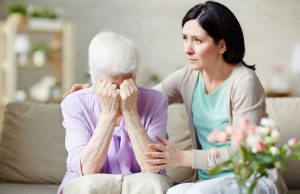
by Rehna Tanna | 08.03.2021
“A good education is the foundation for a better future.” – Elizabeth Warren
Schools across England are reopening today as we take the first step in lockdown easing. Remote learning has not been kind to many students in the past year, creating a big gap between those who are privileged enough to have the proper tools to do school work and those who can’t afford them. As a result, a lot of children don’t feel like they have the support they need. This is even more the case for carers, especially young carers who have to juggle their caring role with adapting to remote learning.
Fortunately, we are finally starting with lockdown easing. According to Prime Minister Boris Johnson, schools reopening “marks a truly national effort to beat COVID-19” and a national effort is what is needed to provide children with the education they deserve during this time. Even with the safety concerns that face this moment, we are sure together we can beat this.
We at Harrow Carers would like to say a big thank you to everything school and college staff have done over the past year and express our appreciation of your hard work, determination, duty and care for the education of children! Your work does not go unnoticed and we are more than grateful.
Above all, we might be moving forward slowly, but we will get there surely!
If you or your children need any support with adjusting to the new school environment, please visit the following sources:
- Samaritans: if you need to talk to someone.
- Rethink: top tips on managing your mental health.
- Harrow Council: council updates.
- BBC: testing guidance during school reopens.

by Rehna Tanna | 05.02.2021
Another lockdown right at the end of 2020 was a fitting yet disappointing end to the year. At least this New Year we will not have to feel the pressure of going to the gym in the name of “New Year, new me”. This does not mean you are off the hook!
Staying fit during lockdown is very important, especially if you are a carer. We know your caring role can be 24/7 but it is important to try to take a break from time to time to take care of yourself. If you think you dont have time, that is fine because you can do other things to maintain your health. Have a read below of the different ways you can take care of yourself:
- Avoid excess: It is very easy to form unhealthy eating habits as a form of coping. In the short term, it feels great. In the long term, not so much. To help with this, try eating smaller meals more frequently during the day and drink a lot of water to fill yourself up. This will help reduce the amount of cravings you have in a day.
- Stay hydrated: Drinking enough water throughout the day helps your body function properly. A lot of experts suggest drinking six to eight glasses.
- Maintain relationships: Being away from those who you love is a daunting experience. Unfortunately, we are still in a pandemic and the lockdown restrictions have just gotten tighter. The best thing we can do is to call the people that we love frequently to remind them that they are not alone and they are loved.
- Spend some time in nature: If you can go outside, then try to go on a walk or run with a lot of trees, grass and general green spaces. This should help you reconnect with the outside world. If you can’t go outside, simply try to observe nature from your house. Examples of this could be listening to birds, smelling your garden flowers or cutting your grass.
- Eat well: You are what you eat! Make sure you eat consistently healthy foods. One way to improve how you eat is by starting to eat five portions of fruits and vegetables everyday.
- Remember to laugh and grow: Laughter is the cure to everything. Try to not focus on the misery that the pandemic has caused rather the opportunities of growth available. And when in doubt put on your favourite sitcom and laugh!
If you are struggling with you health, physical or mental, please don’t hesitate to contact us or our peers below:

by Rehna Tanna | 18.01.2021

Great news for our carers!
The Joint Committee on Vaccination and Immunisation (JCVI) published advice on 30.12.2020 that recommends that carers who are in receipt of Carer’s Allowance or are the main carer of an elderly or disabled person whose welfare may be at risk if the carer contracted COVID should be included in Priority 6 alongside people with underlying conditions.
This is excellent for our carers moving forward and now they can perform their caring role with much more comfort. It has been a tough year for carers, hopefully this news should bring in some long needed relief.
Click here to read more.

by Rehna Tanna | 02.11.2020
We are lucky to have a wonderful diverse group of people who work at Harrow Carers. As Black History month is drawing to a close I’d like to acknowledge all my Harrow Carers colleagues from the BAME community who continue to carry out amazing work. Our Care Support Workers who have carried on caring for others in their homes through such tough times, our amazing Homecare Leader and Field Manager who have coped with ever changing situations and our Employment Personal Advisors helping cares into employment and training..
In addition, our two new placement students Sarah and Nathan have been taking part in the Harrow Carers Step Up Programme. This gives staff an opportunity to present something they feel passionate about outside of their professional lives, and for the rest of the staff to learn about and be inspired. Their excellent presentations helped us to learn a little about Swahili and Japanese. Here are the presentations if you want to learn some Kiswahili and Japanese. Enjoy!
Charmian Boyd CEO

by Rehna Tanna | 23.07.2020

Working with Dementia patients as a carer:
In a nutshell, dementia is the decline in memory, language, problem solving and other thinking skills. The disease is still misunderstood and most urgently, people don’t understand the level of empathy needed when caring for dementia patients. I’m going to change that today.
I have worked as a carer on and off for 10 years. My empathy is always tested when caring for dementia patients. Dementia is a frustrating experience for the person undergoing it. At the same time it can be very frustrating for those caring for them. Patients lose mental and emotional control which manifests itself in tendencies to fight, make insensitive statements and cause harm to people. Caring gets difficult. Sometimes I have moments where I want to pack up everything and leave. The only thing stopping me is my duty to the person. I do it because I love helping others the same way I would want someone to help me. You need to be altruistic in this line of work.
For example, Liam was one of the patients I have worked with in the past. He was an 82 year old man who was in his early stages of dementia. One time, he told me that black people shouldn’t eat Chinese food and they should keep on eating fried chicken. Another time he told me that women are only good at cooking and cleaning the house. Was he this disconnected and insensitive before? I assume not. Furthermore, Jessica is the current patient I’m working with now and she too says a lot of insensitive statements. For instance, a couple of weeks ago she told me that all non-white UK citizens need to leave the country and never come back. You can imagine how irritating that statement was for me being a person of color. Last night she said Jewish people only care about money and they are greedy individuals. She used a more derogatory term, but you get the point. Once again, was she like this before? I assume not. The picture I’m trying to paint here is that working with dementia patients requires a lot of empathy. If you cannot be empathetic to the point you can tolerate such insensitive statements, then you shouldn’t spend too much time around them for both your sakes.
As a rule to myself, I have to shut down all defensiveness and interact as I would with a child. That means smiling, nodding, being agreeable and avoiding conversations that need great thought. If I don’t do this, all hell will break loose. Both of us will end the conversation feeling embarrassed with a great deal of guilt. And yes, they still remember how you made them feel even though they might not remember the thought itself.
I can’t get the thought out of my mind that one day this might happen to me. It can happen to any one of us. Your personality will change, which is saddening given you have worked all your life to perfect an image of yourself only for it to be completely broken down and you can’t do anything about it but watch. We all must face this fear. Fortunately, this is where the work I do becomes important. I try my best to not make them feel as if things are different, I try to make them feel normal.
Being diagnosed should never put someone in a box or corner where life is nothing more than stagnant. Dementia patients should be able to move forward knowing they can still enjoy their life and experience new things.
The way I see it, give the same level of empathy you would want to receive if you ever get diagnosed.







